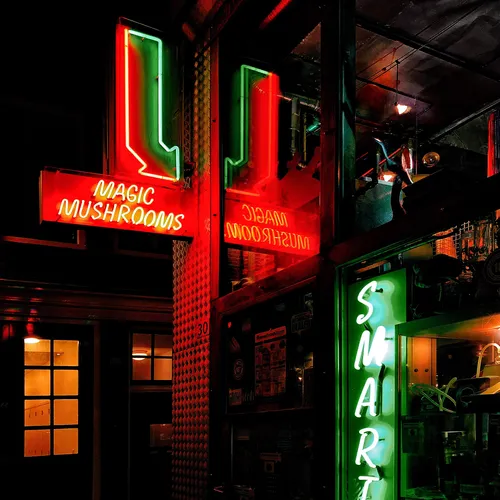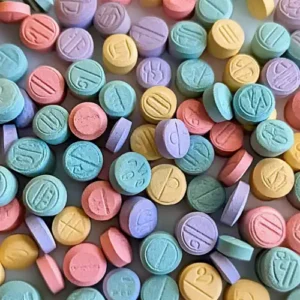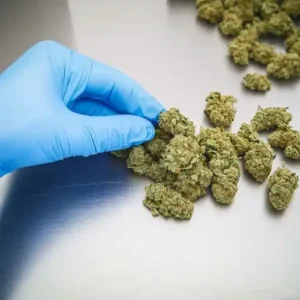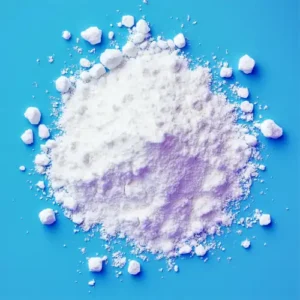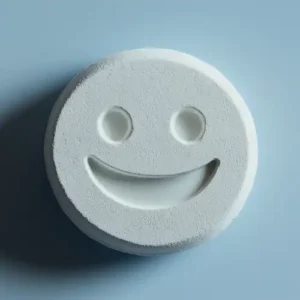Magic mushrooms are becoming increasingly popular in England and Wales, with around 260,000 people aged 16-59 having taken them in the last year. That’s a rise of over 100,000 from 2020. This blog post explores the reasons behind this trend and what effects magic mushrooms can have.
Magic Mushrooms: A Rising Trend
New figures from the Office for National Statistics show that around one in 100 people in England and Wales took hallucinogenic drugs like magic mushrooms in the last year. The data shows it’s older adults driving this trend rather than young people.
In fact, the figures show drug use of all kinds declining among 16-24 year olds. Only 18% reported taking drugs in the last year – the lowest level since 2014.
So why the rising interest from older generations? These types of mushrooms are not typical “party drugs”. As one regular user in his fifties stated, they are “a wiser person’s drug for someone who wants to chill out and spend some time navel gazing”.
Often referred to as “shrooms“, magic mushrooms contain psilocybin, a naturally occurring psychedelic compound. They grow wild in fields and forests across Britain. But many people now easily buy grow-your-own kits online, with advice shared in community groups and forums.
The fungi have also grown in cultural prominence recently. There’s rising scientific research into psychedelics for treating depression and other conditions. Netflix shows and popular books have increased magic mushrooms’ public profile.
But what actually happens when you take them? Effects can vary dramatically depending on the dose. Many people “microdose” tiny amounts without hallucinating – reporting it helps their mood, outlook and creativity.
Slightly larger doses can produce a warm, tingly feeling and altered senses. Trees may appear to have faces, colours can seem more vibrant, sounds more resonant. As one middle-aged user described it: “You remember what happiness feels like.”
High doses can induce visions, pseudo-enlightenment and “existential rabbit holes”. As this user experienced, surroundings can change to surreal scenes, with reality bending qualities. One can become “tangled up” in intense trains of thought about life, death and consciousness.
So while magic mushrooms are showing promise medically, they still also pose risks like anxiety, confusion and paranoia in uncontrolled settings. Groups warn against taking them alongside mental health issues or without planning for unwanted effects.
But with mental health problems increasing after the pandemic, it’s unsurprising some are turning to alternative treatments like mushrooms. Especially when conventional medication fails to help long-term issues like depression.
However, magic mushrooms remain Class A drugs in Britain – harshly criminalised alongside heroin and cocaine. So more people tripping raises legal issues around drug reforms.
Possessing even natural mushrooms risks fines and jail time. Selling, growing or importing spores also breaks the law. But with mail order grow kits, Telegram groups sharing advice, and roadside hauls – prohibition may be difficult to enforce.
Perhaps recognising therapeutic potential, Oregon has already legalised supervised psilocybin retreats. Parts of Canada look set to follow too. So we could see pressure growing on UK drug policy as mushrooms continue spreading.
Whether the mushroom boom will persist post-pandemic remains to be seen. Perhaps it’s a passing trend among stressed professionals seeking new perspectives. An emerging underground culture now going mainstream. Or the first shoots of a widespread mental health revolution.
But with ever more people exploring magic mushrooms’ curious qualities, these unusual fungi look set to remain part of Britain’s cultural consciousness for some time yet. Both as a symbol of psychedelic promise and the complications of prohibition.
Photo by Marcus Loke on Unsplash
Zoom Testing is a leading UK drug testing company and a supplier of Drug Test Kits.

